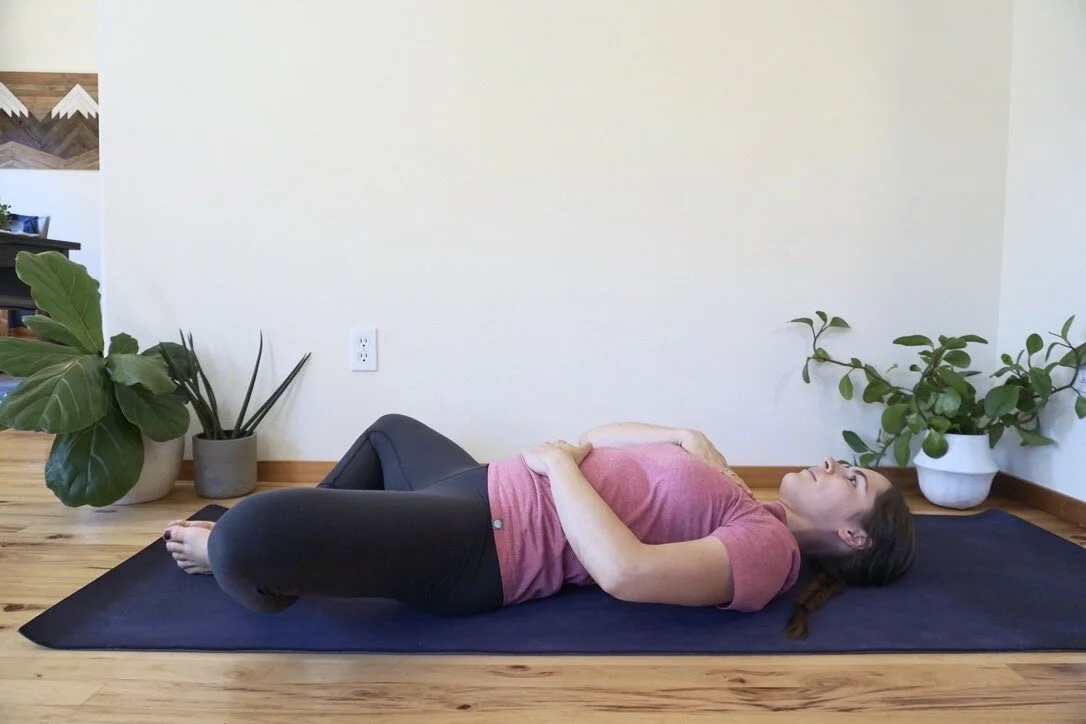360 Breathing aka Diaphragmatic Breathing
Although breathing is not a very “sexy” exercise, it is one of the most under utilized exercises. On average you take 16 breaths per minute, that is 960 breaths in an hour and 23,040 breaths in a day. And unfortunately, most people don’t even breathe correctly!
So what exactly is 360 breathing/diaphragmatic breathing?
Diaphragmatic breathing uses your diaphragm, your pelvic floor and all of your abdominal muscles to work together to fill your lungs with air, while keeping your upper chest relaxed.
How to work on better breathing:
Lie down on your back
Place one had on your tummy and one hand on your chest
Pay attention to your breath and notice what hand is predominantly moving
Now try to have just the hand on your belly move for the next 5-10 breaths
Then, place both hands on your sides and try to breathe into both hands evenly for 5-10 breaths
Then, place both hands on your lower back (where your kidneys are) and try to breathe into both hands evenly for 5-10 breaths
This is typically the hardest one and may take a few days to get your breath into this area
Now try to incorporate breathing into the front, side and back all at the same time (creating breath in a 360 degree radius)
Try to breathe through your nose (inhale and exhale) and not through your mouth during this exercise and anytime you are at rest. If you are running up a mountain it’s okay to breathe through your mouth.
Breathing Exercise:
Breathe in for a count of 4
Hold for a count of 2
Breath out for a count of 6
Hold for a count of 2
Repeat
This exercise is great to do throughout the day to help stimulate the parasympathetic (rest and digest) nervous system. Aim to do this for 10 breaths up to 5-10 minutes.
If this count doesn’t work for you, you can easily change it, but the goal is for your exhale to be slightly longer than your inhale and for there to be a slight pause between each transition.
Having any pelvic floor pain or incontinence?
Continuing 360 breathing
Place your hands on your inner thigh and try to draw your breath all the way down to your pelvic floor (where your hands are)
Why should you work on your diaphragmatic breathing?
It will give you better strength, stability and coordination
Helps to calm your autonomic nervous system
It is the foundation for every exercise and movement
Helps to reconnect to your core and pelvic floor
It is the first “core” exercise you can do after giving birth
How does our breathing become dysfunctional?
Breathing can become dysfunctional for many different reasons. It is affected by the way we sit, stand, move and even how we hold onto stress. But like I said before breathing is the foundation for all of our movements and we do it over 23,000 times a day, so even though it’s not very glamorous it is worth spending a couple minutes a day dedicated to breathing correctly.
Now you can see how important your breath is. I recommend dedicating 5 minutes a day 5 days a week to working on breathing. Or do it as a warm up before your core exercises.



